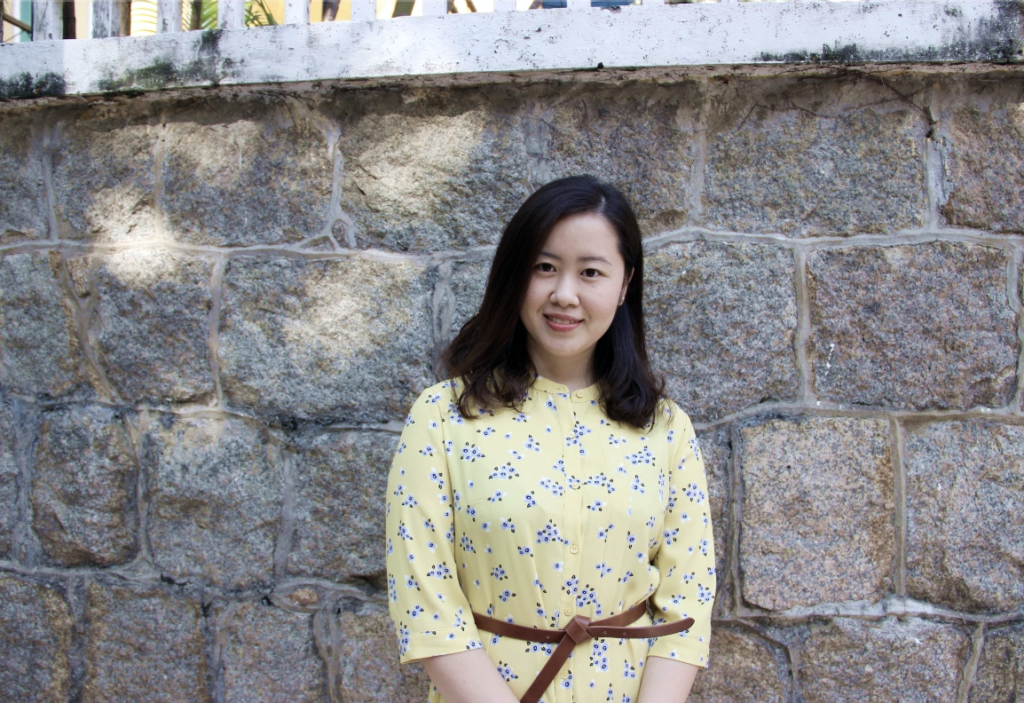Jasmin Yiu
The Cardinal Newman Cultural and Art Performance Centre (CCCM) will officially open on December 5. Before the grand opening, CCCM will organize a series of activities for the public, the first one will be a talk entitled “Knowing Macanese through Musicology.” Ms Flora Chan, the speaker, gives O CLARIM a glimpse of the relations between the Macanese and music.
Why did you choose Musicology as your major subject?
I was surrounded by music in the church since I was young and gradually influenced by music. Music has become indispensable in my life. I’ve learned instruments such as piano and cello and took music as my major in the university. Although I studied Music Education, I have had a strong interest in knowing the music of the Macanese community since long ago. In order to know more about this community, I started to learn Portuguese since my first year of university and started to study the Macanese language, Patuá, by myself. Patuá is classified as a “critically endangered” language by UNESCO. That’s why I think this language urgently needs to be “rescued.” So I wrote a thesis about the music affection of the Macanese through “Tuna Macaense,” because each time the band performs their repertoire in Patuá, they make this language alive. Later on, with the desire to protect the culture of the Macanese community and Patuá, and to study more about the cultural situation of the Portuguese-speaking countries, I decided to study Ethnomusicology in Portugal.
Why are you interested in the culture of the Portuguese-speaking countries and the Macanese community? Is it related to the subject that you studied?
I am a Catholic. I was immersed in music and joined the choir in church since I was a child. Besides church music, I was attracted by the Macanese who come to the church to attend the bilingual Mass as well. They have unique faces and they speak a special language. I was influenced by them and from there I developed the interest towards the Macanese community. Plus, when I was in Portugal, I met so many people from the Portuguese-speaking countries such as Brazil, Angola, Guinea-Bissau, and a supervisor who studies Goan music. My interest in the culture of these countries increased. This is what moved me to make Macanese music the main theme of my thesis.
Why would you choose to study in Portugal?
This is a good question! Many people around me often ask why I didn’t choose to study in Germany or Austria when they know I was studying music. In fact, I studied music from the Portuguese-speaking countries, and Portugal was the suzerain of them, so I chose to live and study in Portugal. Also, Portuguese is still one of the official languages of Macau, I think I have the responsibility to know this language, which is why I studied Portuguese when I was in Portugal.
Do you think that people in Macau need to know the history of the Macanese? Why?
In my opinion, everyone should know the history of his/her birthplace. Hence, people of Macau should also know the history of the Macanese. The Macanese community plays an important role in Macau. I would say that if there were no Macanese, the history of Macau would not be complete. Nowadays, I believe many Macau young people do not know what Macanese is, neither do they know Patuá. In fact, the Macanese community is weakening and their precious culture is fading. The community doesn’t know its future. They doubt about themselves and they are being polarized – being either more Chinese or more Portuguese. Their culture might disappear someday and this will be a pity. I think that as we are from Macau, we have the responsibility to know the history of Macau.
You are the first person to study about the Macanese community in a musicological way. How do you feel about this? What difficulties have you encountered?
It is an honor for me and I feel blessed. And a sense of solitariness. As I explored knowledge, I was so lonely, especially when I was living in Portugal alone. As I didn’t have much theoretical base in Musicology, I found it extremely difficult. To make up for some missing knowledge, I could just rely on myself. Fortunately, I had a good supervisor who was guiding me along the way, and I am extremely grateful for this.


 Follow
Follow


